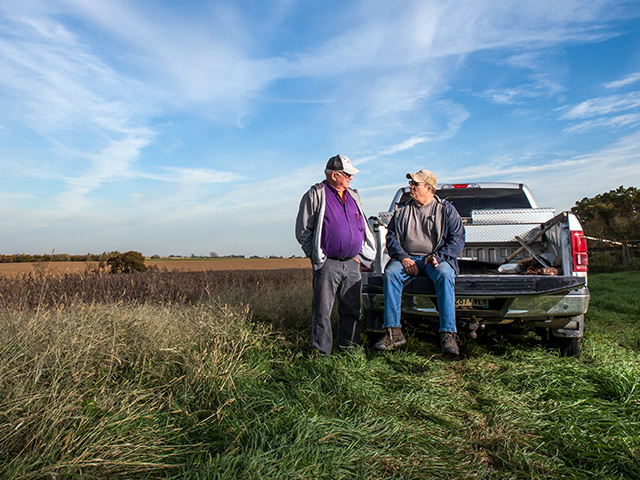Family Business Matters
A Step Up Instead of a Step Down
Transitions in family agriculture businesses are often focused on the senior generation "letting go" and the younger generation "grabbing hold." But, the people who let go also need something to embrace when they consider their next chapter. Boredom, loss of identity and the fear of no longer being relevant are common concerns among those facing retirement from the family farm or ranch. Who wants to grab hold of those kinds of issues?
The "what next" discussion with the senior generation often involves hobbies, travel, moving to town or serving on boards. Those are great activities, but what if the senior generation has no hobbies other than farming or working? What if moving to town is depressing? What if traveling is not a realistic option or serving on church or civic committees isn't a strength?
One way to reframe the transition so that it still has relevance for the business and excitement for those transitioning away from daily tasks is going from "CEO" to "Chairperson of the Board." That may sound like a big company title, but the larger point is to focus on a different set of business-related activities. Consider these three ways of thinking about the role change.
FROM CAPTAIN TO COACH
If you think about a sports team, the captain is often on the field with their team members. They are calling the plays while playing the game, active participants in the march down the field or run down the court. A coach, on the other hand, is on the sidelines. They are still active, but they are not playing. They are watching the game from a different place, thinking about options, planning for contingencies and looking several steps ahead, not just at the immediate activity.
P[L1] D[0x0] M[300x250] OOP[F] ADUNIT[] T[]
FROM DELEGATOR TO DESIGNER
A CEO is often expected to tell other people what to do, keeping people focused on the right tasks. A chairperson, however, can work on designing more strategic initiatives and conversations. For example, he or she might explore how to diversify the balance sheet of the business. That person might concentrate on designing an advisory board, developing an employment policy for family members, finding new locations in which to operate or researching the latest trends in how to retain key employees. He or she is planning for some of the long-term opportunities and obstacles facing the organization.
FROM SUPERVISOR TO SUPPORTER
A third way to think about the chairperson role is to move away from supervising people and toward supporting their personal and professional development. The farm or ranch can get so busy with work that people lose focus of what Stephen Covey called "sharpening the saw," his metaphor for improving knowledge and skills.
Freed from daily operational responsibilities, the chairperson can have conversations with employees and family members about the education and tools they need to be more effective. He or she can explore potential courses, seminars or conferences, and talk to other farms or ranches about how they are supporting the growth of their people. A chairperson may be near the tail-end of his or her career, but what better way to spend time than encouraging younger people to invest in those things that will make their career great?
A love of the farming or ranching lifestyle, coupled with the demands for labor on a farm or ranch, can create a dynamic that makes it hard to let go. Reframing the transition challenge so the senior leader can grab hold of a chairperson role makes the generational transition easier and gives the retiring CEO a vital role in the ongoing life of the company.
**
-- Write Lance Woodbury at Family Business Matters, 2204 Lakeshore Dr., Suite 415, Birmingham, AL 35209, or email lance.woodbury@kcoe.com.
[PF_1221]
(c) Copyright 2021 DTN, LLC. All rights reserved.




